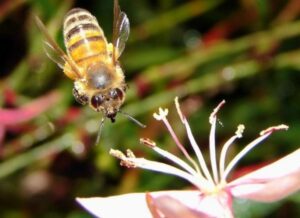Widespread Bee Deaths Are Gonna Cost You: Higher Food Prices Expected

Colony Collapse Disorder, the mysterious illness killing off countless bee communities around the world, is expected to result in rising food prices, reports Rodale.
“Honeybees offer upwards of $20 billion worth of free services to farmers each year as they pollinate fruit, vegetable, and nut tree crops, helping to increase yields. In fact, honeybees are responsible for 80 percent of crop pollination in America,” says the article. And it’s this staggering contribution that could send prices on some foods through the roof. “Unprecedented losses over the harsh winter and throughout 2012 have erased up to half of the hives farmers need to pollinate favorites like blueberries, cherries, and apples,” and there’s little relief in site, at least here in the U.S. As a result, farmers are now being forced to spend money on pollination that bees would do for free, and that’s going to be reflected at retail.
While some countries have begun addressing the issue by restricting or banning the insecticides believed responsible, the U.S. has not yet made any moves to protect its bee colonies. Neonicotinoids are insecticides believed to be a major contributor to Colony Collapse Disorder. The chemicals are used to coat seeds, but they also penetrate the seed and affect the pollen and nectar, which in turn appears to disorient bees, making them abandon their hives, have issues navigating, and even causing their immune systems to weaken so severely that they die prematurely.
Two recently published studis appearing in the journal Nature Communications and the Journal for Experimental Biology found exposure to the insecticides neonicotinoids, imidacloprid and clothianidin, caused brain damage in bees from the brain lobes failing to communicate to being unable to recall memories, such as the smell of food.
Keep in touch with Jill on Twitter @jillettinger
Image: aussiegall

